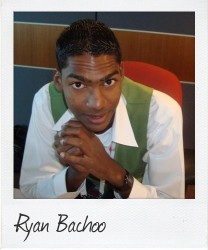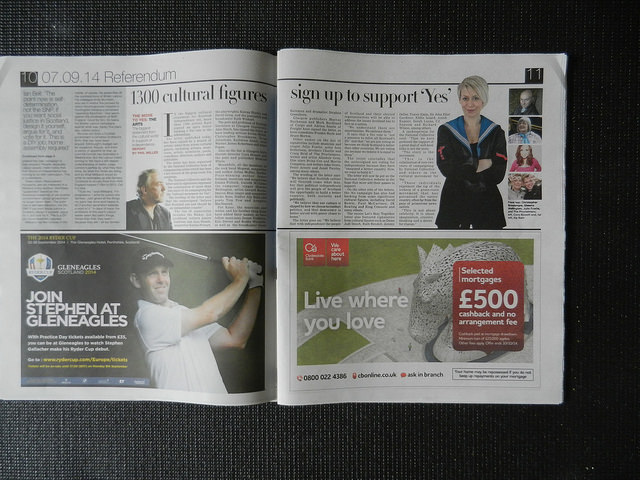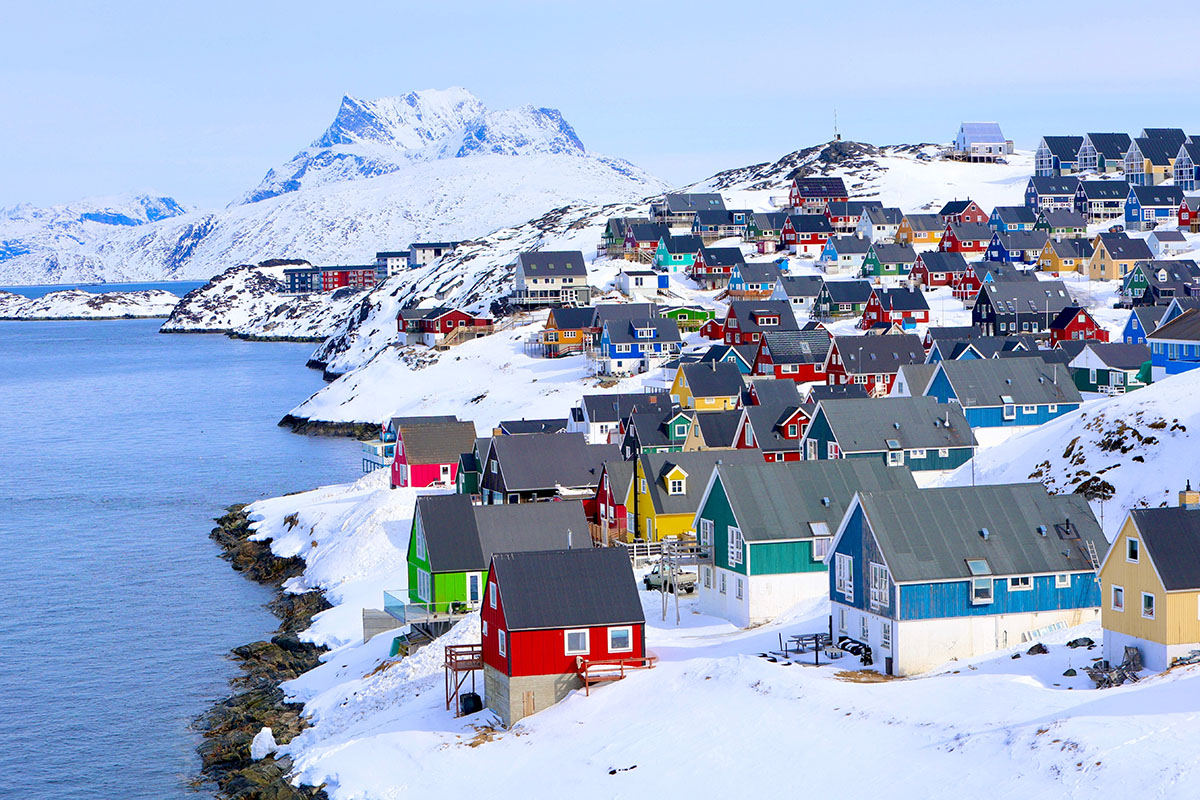"Scotland’s vote reveals issues with the media"
September 29 Scotland’s recent vote on independence was closely watched in the Caribbean, writes Ryan Bachoo, 25, a Commonwealth orrespondent from Trinidad and Tobago, but he argues that news coverage of the historic vote revealed bias in the media.
Scotland’s recent vote on independence was closely watched in the Caribbean, writes Ryan Bachoo, 25, a Commonwealth orrespondent from Trinidad and Tobago, but he argues that news coverage of the historic vote revealed bias in the media.
So Scotland stayed. And my draft of this version of the prodigal son leaving home is now in the recycle bin.
In reality, the build-up to the referendum put the race a lot closer than it turned out to be. At the start of the month the polls suggested that those for independence were leading. As the days edged closer to the referendum, those against independence started to tip the scales.
I watched avidly from the Caribbean to see this 300+ year historical antiquity play out before the world. Like so many others in the Caribbean, as part of the Royal Commonwealth I felt very close to the matter, pro-independence or not. The feeling was of far-away cousins watching as the family fought and argued on the brink of a messy divorce – yet there was nothing we could do.
I will categorically say that I am happy the majority of Scotland decided to stay in the United Kingdom and I do believe they are all the better for it. But above everything that happened over the last three months, there is only one real issue I take to task throughout the entire campaign – the media. I received all of my information from the British media and to be bold, sometimes I just stopped reading. The desperation and publicity (negative or positive) showed particularly by the Guardian and the Telegraph left one to ponder about the state of British politics and the media that covers it.
My assessment is that both newspapers sold out – perhaps not financially – on an anti-independence campaign in the content of their papers and social media. In my opinion it certainly was not balanced, and while I don’t think the coverage had any particular relevance to the outcome it did leave me disappointed in both newspapers. Suddenly, I felt reading the Telegraph and Guardian was like watching NBC and FOX during an American election year. One network is for the Democrats and the other for the Republicans, so a balanced view from either is unlikely. It is disappointing when two of Britain’s best newspapers drop their standards as they did. Their personal agenda was not masked, nor did they try to mask it in the content they shared and put on their websites.
The build up by the media unfortunately was like a promo to a grand boxing match featuring two world heavyweights. There was a lot of content on the historical aspect of the union, what the “Yes” were saying, what the “No” were doing – but reporting never really got into the finer details of the economics and politics of the situation. Most people openly stated via social media that the battle of independence was not a cultural one, and they were right. Scotland’s fight, as it became clearer closer to referendum day, was with Westminster. The fact is Westminster has been unfair to Scotland in many regards over the years. There wasn’t a lot of good that could have been said from the economic and political side of things, and the Telegraph and Guardian rarely touched the surface of reporting on that.
The Guardian seems to quickly be transforming into a left wing newspaper. Their reports are increasingly biased compared to when I started reading it six years ago. British politics in itself has undergone some serious blows since the Tony Blair administration, and the growing visible weakness of the nation’s media goes hand in hand with that. It seems to be the same everywhere there is a democracy. If the government is weak, and the media is weak, then the latter can be easily bought. This is quite unlike the British media I knew while growing up in the ‘90s. The BBC looks to have totally gone into the conglomerate ownership of the government.
Disappearing are the days when the media stands up to governments and reports objectively. Instead, media across the world is being sold out by the top of its organisations – the businessmen and women who make the decisions – and journalists are left to follow instruction. Journalists are no longer on the side of impartiality; now they are forced to take a side.
Politics has infiltrated the media everywhere, and the cancer spreads very quickly. Britain was once a leader and pioneer of great journalism. When I was a boy, I dreamed of working for the BBC. Now, I can work in a public relations firm and it would probably be the same thing.
photo credit: Ninian Reid via photopin cc
………………………………………………………………………………………………………………
About me:
“Hi, my name is Ryan Bachoo. I’m a Journalist and Public Relations Practitioner from Princes Town in the twin island of Trinidad and Tobago. I’ve moved into the field of Mass Communication now. I currently work for the West Indies Cricket Board, protecting the online image of West Indies Cricket.
I’ve been a Broadcast Journalist at Cable News Channel 3 for three years. For the Commonwealth Youth Secretariat, I write on topics of politics, war and economics.”
Ryan Bachoo
Journalist & Public Relations Practitioner
The People’s Writer
I speak for those who have no voice!
…………………………………………………………………………………………………………………
Opinions expressed in this article are those of the author and do not necessarily represent the views of the Commonwealth Youth Programme. Articles are published in a spirit of dialogue, respect and understanding. If you disagree, why not submit a response?
To learn more about becoming a Commonwealth Correspondent please visit: http://www.yourcommonwealth.org/submit-articles/commonwealthcorrespondents/
…………………………………………………………………………………………………………………




